Zeaxanthin
How to submit an article:
- Registered users can submit any published journal article that has a unique DOI (Digital Object Identifier) name or link to Research Hub.
- For example, you can paste the full DOI link:
https://doi.org/10.1109/5.771073or just the DOI name:10.1109/5.771073into the field above and click submit. - The person who is first to submit a valid article to Research Hub will forever be credited for it, and every article submission earns you +6 Research Points.
Published research studies are articles that present the findings of original research that has undergone a peer-review process and has been made publicly available in scholarly journals, books or other media.

Lutein and Zeaxanthin and Their Roles in Age-Related Macular Degeneration—Neurodegenerative Disease
2022 Feb 16 Nutrients Mrowicka M, Mrowicki J, Kucharska E, Majsterek I
Lutein and zeaxanthin, obtained from sources like dark leafy vegetables and fruits, play a crucial role in defending against oxidative stress and scavenging free radicals. These carotenoids, concentrated in the macula of the retina, are essential for eye health. Specific binding proteins, StARD3 for lutein and GSTP1 for zeaxanthin, facilitate their accumulation in the retina. Supportive therapy with lutein and zeaxanthin has been shown to delay the progression of eye diseases, such as age-related macular degeneration (AMD) and cataracts. The article provides insights into the metabolism and bioavailability of these carotenoids, emphasizing the importance of consuming xanthophyll-rich foods.
Review Article Age-Related Macular Degeneration ZeaxanthinWolfberry‐derived zeaxanthin dipalmitate delays retinal degeneration in a mouse model of retinitis pigmentosa through modulating STAT3, CCL2 and MAPK pathways
2021 Jul 31 Journal of Neurochemistry Liu F, Liu X, Zhou Y, Yu Y, Wang K, Zhou Z, et al.
Experimental Study Animal Study Retinitis Pigmentosa Goji Berry Retina degenerationZeaxanthin dipalmitate, a wolfberry-derived carotenoid, can delay retinal degeneration in mice modelling Retinitis Pigmentosa mainly through its anti-inflammatory and oxidative stress effects.
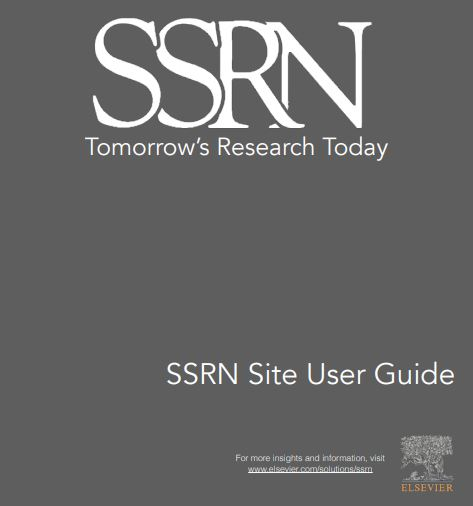
The Nutraceutical potential of Carrots carotenoids in Chronic Eyes Defects (CEDs): A Review
2021 Jan SSRN Electronic Journal Taiwo EA, Abdulkareem TT, Fajemisin E
Review Article Nearsightedness Cataracts Age-Related Macular Degeneration Glaucoma CarrotPhytochemicals in carrots, particularly carotenoids, are effective at reducing eyesight degeneration and treating chronic eye defects due to their antioxidant and anti-inflammatory properties.
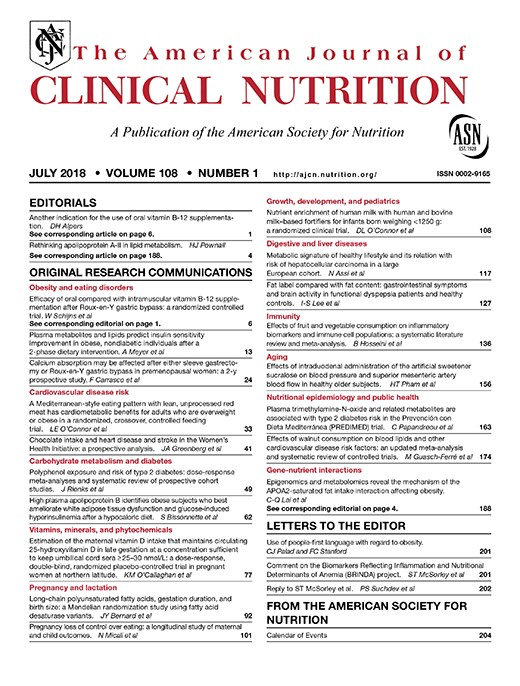
A novel botanical formula improves eye fatigue and dry eye: a randomized, double-blind, placebo-controlled study
2020 Aug The American Journal of Clinical Nutrition Kan J, Wang M, Liu Y, Liu H, Chen L, Zhang X, et al.
Randomised Controlled Trial Goji Berry Dry Eye Blackcurrant Lutein Eye Fatigue Zeaxanthin ChrysanthemumA botanical formula of lutein ester, zeaxanthin, and extracts from blackcurrant, chrysanthemum, and goji berry can effectively lessen eye fatigue and improve macular function.
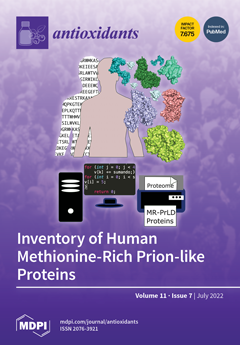
Nutrients for Prevention of Macular Degeneration and Eye-Related Diseases
2019 Apr 02 Antioxidants Khoo H, Ng H, Yap WS, Goh H, Yim H
Various antioxidants, including anthocyanins, carotenoids, flavonoids, and vitamins, have shown efficacy in reducing the risk of eye-related diseases. Anthocyanins from berries, β-carotene, lutein, zeaxanthin, and flavonoids from plants exhibit anti-inflammatory mechanisms. Combinations of these antioxidants, vitamins, and minerals have a synergistic effect in preventing or reducing the risk of macular degeneration. Clinically proven dietary supplements and nutraceutical formulas are available, but understanding the right dosage, efficacy, and bioavailability is crucial for consumers. The review also addresses potential causal factors, treatments, and controversies in using antioxidants for macular degeneration prevention, emphasizing the need for future multiethnic and multicenter trials.
Review Article Eye Health Age-Related Macular Degeneration Eye Diseases Lutein ZeaxanthinResearch insights are moderated by the Research Hub team and offer an at-a-glance overview of interesting research findings.
2021 Journal of Neurochemistry
Zeaxanthin dipalmitate, a wolfberry-derived carotenoid, can delay retinal degeneration in mice modelling Retinitis Pigmentosa mainly through its anti-inflammatory and oxidative stress effects.
Experimental Study Goji Berry Retina degeneration Retinitis Pigmentosa
Wolfberry‐derived zeaxanthin dipalmitate delays retinal degeneration in a mouse model of retinitis pigmentosa through modulating STAT3, CCL2 and MAPK pathways
Liu F, Liu X, Zhou Y, Yu Y, Wang K, Zhou Z, et al.

2021 SSRN Electronic Journal
Phytochemicals in carrots, particularly carotenoids, are effective at reducing eyesight degeneration and treating chronic eye defects due to their antioxidant and anti-inflammatory properties.
Review Article Age-Related Macular Degeneration Carrot Cataracts Glaucoma Nearsightedness
The Nutraceutical potential of Carrots carotenoids in Chronic Eyes Defects (CEDs): A Review
Taiwo EA, Abdulkareem TT, Fajemisin E

2020 The American Journal of Clinical Nutrition
A botanical formula of lutein ester, zeaxanthin, and extracts from blackcurrant, chrysanthemum, and goji berry can effectively lessen eye fatigue and improve macular function.
Randomised Controlled Trial Blackcurrant Chrysanthemum Dry Eye Eye Fatigue Goji Berry
A novel botanical formula improves eye fatigue and dry eye: a randomized, double-blind, placebo-controlled study
Kan J, Wang M, Liu Y, Liu H, Chen L, Zhang X, et al.
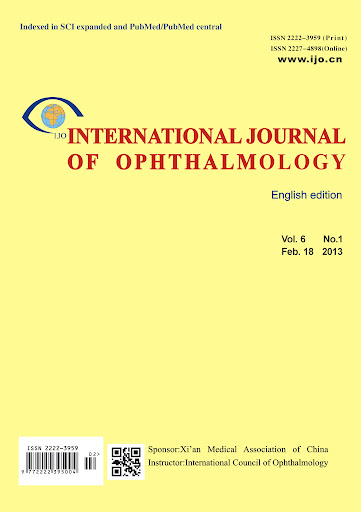
2018 International Journal of Ophthalmology
Goji berry supplementation can improve macular pigment and visual acuity in patients with early age-related macular degeneration by increasing serum zeaxanthin levels.
Randomised Controlled Trial Age-Related Macular Degeneration
Macular pigment and serum zeaxanthin levels with Goji berry supplement in early age-related macular degeneration
Shang Li, Na Liu, Li Lin, et al.
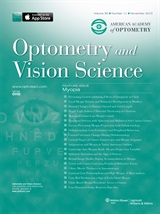
2011 Optometry and Vision Science
Daily goji berry supplementation increases antioxidant levels and protects visual health in the elderly, though the exact mechanism remains unclear.
Randomised Controlled Trial Antioxidant Eye Health Goji Berry
Goji Berry Effects on Macular Characteristics and Plasma Antioxidant Levels
Bucheli P, Vidal K, Shen L, Gu Z, Zhang C, Miller LE, et al.
Review Articles
Review articles summarise and critically evaluate the current state of research on a specific topic or field by synthesising multiple primary research studies.

Lutein and Zeaxanthin and Their Roles in Age-Related Macular Degeneration—Neurodegenerative Disease
2022 Feb 16 Nutrients Mrowicka M, Mrowicki J, Kucharska E, Majsterek I
Lutein and zeaxanthin, obtained from sources like dark leafy vegetables and fruits, play a crucial role in defending against oxidative stress and scavenging free radicals. These carotenoids, concentrated in the macula of the retina, are essential for eye health. Specific binding proteins, StARD3 for lutein and GSTP1 for zeaxanthin, facilitate their accumulation in the retina. Supportive therapy with lutein and zeaxanthin has been shown to delay the progression of eye diseases, such as age-related macular degeneration (AMD) and cataracts. The article provides insights into the metabolism and bioavailability of these carotenoids, emphasizing the importance of consuming xanthophyll-rich foods.
Review Article Age-Related Macular Degeneration Zeaxanthin
The Nutraceutical potential of Carrots carotenoids in Chronic Eyes Defects (CEDs): A Review
2021 Jan SSRN Electronic Journal Taiwo EA, Abdulkareem TT, Fajemisin E
Review Article Nearsightedness Cataracts Age-Related Macular Degeneration Glaucoma CarrotPhytochemicals in carrots, particularly carotenoids, are effective at reducing eyesight degeneration and treating chronic eye defects due to their antioxidant and anti-inflammatory properties.

Nutrients for Prevention of Macular Degeneration and Eye-Related Diseases
2019 Apr 02 Antioxidants Khoo H, Ng H, Yap WS, Goh H, Yim H
Various antioxidants, including anthocyanins, carotenoids, flavonoids, and vitamins, have shown efficacy in reducing the risk of eye-related diseases. Anthocyanins from berries, β-carotene, lutein, zeaxanthin, and flavonoids from plants exhibit anti-inflammatory mechanisms. Combinations of these antioxidants, vitamins, and minerals have a synergistic effect in preventing or reducing the risk of macular degeneration. Clinically proven dietary supplements and nutraceutical formulas are available, but understanding the right dosage, efficacy, and bioavailability is crucial for consumers. The review also addresses potential causal factors, treatments, and controversies in using antioxidants for macular degeneration prevention, emphasizing the need for future multiethnic and multicenter trials.
Review Article Eye Health Age-Related Macular Degeneration Eye Diseases Lutein ZeaxanthinClinical Trials
Clinical trials are research studies that involve people and are conducted to evaluate the safety and efficacy of new treatments or interventions, such as drugs, medical devices, or behavioural therapies.

A novel botanical formula improves eye fatigue and dry eye: a randomized, double-blind, placebo-controlled study
2020 Aug The American Journal of Clinical Nutrition Kan J, Wang M, Liu Y, Liu H, Chen L, Zhang X, et al.
Randomised Controlled Trial Goji Berry Dry Eye Blackcurrant Lutein Eye Fatigue Zeaxanthin ChrysanthemumA botanical formula of lutein ester, zeaxanthin, and extracts from blackcurrant, chrysanthemum, and goji berry can effectively lessen eye fatigue and improve macular function.

Macular pigment and serum zeaxanthin levels with Goji berry supplement in early age-related macular degeneration
2018 Jun 18 International Journal of Ophthalmology Shang Li, Na Liu, Li Lin, et al.
Randomised Controlled Trial Age-Related Macular Degeneration ZeaxanthinGoji berry supplementation can improve macular pigment and visual acuity in patients with early age-related macular degeneration by increasing serum zeaxanthin levels.

Goji Berry Effects on Macular Characteristics and Plasma Antioxidant Levels
2011 Feb Optometry and Vision Science Bucheli P, Vidal K, Shen L, Gu Z, Zhang C, Miller LE, et al.
Randomised Controlled Trial Goji Berry Eye Health Antioxidant ZeaxanthinDaily goji berry supplementation increases antioxidant levels and protects visual health in the elderly, though the exact mechanism remains unclear.
Study Protocols
Published study protocols are detailed plans that outline the objectives, methodology, statistical analyses, and organisation of a research study that have been made publicly available for others to review and use as a reference.
Presentation Slides

Experimental Study
Zeaxanthin dipalmitate, a wolfberry-derived carotenoid, can delay retinal degeneration in mice modelling Retinitis Pigmentosa mainly through its anti-inflammatory and oxidative stress effects.
Liu F, Liu X, Zhou Y, Yu Y, Wang K, Zhou Z, Gao H, So KF, Vardi N, Xu Y

Review Article
Phytochemicals in carrots, particularly carotenoids, are effective at reducing eyesight degeneration and treating chronic eye defects due to their antioxidant and anti-inflammatory properties.
Taiwo EA, Abdulkareem TT, Fajemisin E

Randomised Controlled Trial
A botanical formula of lutein ester, zeaxanthin, and extracts from blackcurrant, chrysanthemum, and goji berry can effectively lessen eye fatigue and improve macular function.
Kan J, Wang M, Liu Y, Liu H, Chen L, Zhang X, Huang C, Liu BY, Gu Z, Du J

Randomised Controlled Trial
Goji berry supplementation can improve macular pigment and visual acuity in patients with early age-related macular degeneration by increasing serum zeaxanthin levels.
Shang Li, Na Liu, Li Lin, et al.

Randomised Controlled Trial
Daily goji berry supplementation increases antioxidant levels and protects visual health in the elderly, though the exact mechanism remains unclear.
Bucheli P, Vidal K, Shen L, Gu Z, Zhang C, Miller LE, Wang J
Executive Summary
Write an executive summary in the form of a blog article on the topic of "Research into Chinese medicine treatment for Zeaxanthin" summarising the research below and using language that can be easily understood by patients and avoiding medical jargon using a professional and caring tone of voice.
Write an executive summary in the form of a blog article on the topic of "Researched Chinese medicine treatments for Zeaxanthin" summarising the research below in an objective and easy to understand way, and using language that can be easily understood by patients. Group the article into Chinese medicine treatments first, followed by nutrition and other treatments. Avoid using medical jargon and use a professional and caring tone of voice.
Write me a concise but easy to understand executive summary on the topic of "Chinese medicine treatments for Zeaxanthin" based on the following research that I will give you. Your summary should be 2 paragraphs long in Australian English spelling and include references to the studies.
A Experimental Study published in 2021 in the journal Journal of Neurochemistry found that Zeaxanthin dipalmitate, a wolfberry-derived carotenoid, can delay retinal degeneration in mice modelling Retinitis Pigmentosa mainly through its anti-inflammatory and oxidative stress effects. In the study's methodology, Zeaxanthin dipalmitate (ZD) was intravitreally injected into mice on postnatal day 16. Subsequent assessment of retinal function and structure were made at P25 using visual behavior tests, multi-electrode-array recordings, and immunostaining. The involved gene expressions and their regulation by ZD were delved into through transcriptome sequencing and western blotting. In the discussion of results, it was discovered that ZD treatment significantly improved the visual behavior of the mice and delayed degeneration of the retinal photoreceptors, enhancing the light responses of photoreceptors, bipolar cells, and retinal ganglion cells. The ZD treatment led to a decline of up-regulated genes connected to inflammation, apoptosis, and oxidative stress. The study found that ZD reduces the activation of signal transducer and activator of transcription 3 and chemokine ligand 2, down-regulates the expression of the inflammatory factor GFAP, and withholds extracellular signal regulated protein kinases and P38, but not JNK pathways. All these findings indicate the potential of ZD as treatment for Retinitis Pigmentosa.
A Review Article published in 2021 in the journal SSRN Electronic Journal found that Phytochemicals in carrots, particularly carotenoids, are effective at reducing eyesight degeneration and treating chronic eye defects due to their antioxidant and anti-inflammatory properties. Throughout the review process, seventy original research and review articles were examined, all published between 2000 and 2020 across four major journal databases: Elsevier, PubMed, ResearchGate and Plos One. The focus of the search was directed by six keywords, centring on both in-vivo and in-vitro study results related to the topic of interest. Among the various findings, it was consistently revealed that carrots contain a multitude of bioactive compounds, notably carotenoids, which have been proven to be effective in halting and treating eye degenerations including Nyctalopia, Myopia, Cataracts, Age-related Macular Diseases and Glaucoma. Carotenoids have been found to work as potent antioxidants and anti-inflammatory agents, defending eyes against vision loss due to oxidative stress. Thus, the increased consumption of carrots can potentially serve as a natural therapeutic approach and enhancer of vision.
A Randomised Controlled Trial published in 2020 in the journal The American Journal of Clinical Nutrition found that A botanical formula of lutein ester, zeaxanthin, and extracts from blackcurrant, chrysanthemum, and goji berry can effectively lessen eye fatigue and improve macular function. Research methodology involved the distribution of 360 randomly selected participants into four groups where they received placebos and three varied doses of a botanical formula. This formula, given in chewable tablets comprised of 6 mg, 10 mg, or 14 mg of lutein. Each participant was administered these once daily over a period of 90 days, and had three check-ins at the beginning, at day 45, and finally on day 90 of the study. The results of the study indicated that the botanical formula effectively improved the individual scores of participants on eye fatigue symptoms like eye soreness, blurred vision, dry eyes, foreign body sensation, and tearing. Using the formula resulted in a notable decrease in the total score of eye fatigue symptoms at both the 45-day and 90-day intervals as compared to the placebo while also significantly improving visuognosis persistence time. Tear secretion improvement was observed in the groups having 10mg and 14mg lutein formula, supported by the Schirmer test. Furthermore, the results showed an increase in macular pigment optical density with all three doses of the formula, but no significant alterations were observed in the retinal thickness and retinal volume among all the groups at both check-ins.
A Randomised Controlled Trial published in 2018 in the journal International Journal of Ophthalmology found that Goji berry supplementation can improve macular pigment and visual acuity in patients with early age-related macular degeneration by increasing serum zeaxanthin levels. In this prospective, randomized controlled study, 114 patients, aged 51 to 92 and with early age-related macular degeneration, were divided into two groups. One group was given a daily supplementation of 25 grams of Goji berries for 90 days while the control group continued with their normal diet. The study used Heterochromatic Flicker Photometry to measure the Macular Pigment Optical Density (MPOD) and High-Performance Liquid Chromatography to analyze the levels of serum lutein and zeaxanthin. These were recorded at the beginning and at the end of the study. In the Goji berry group, by the end of the study, there was no significant change in serum lutein levels. However, there was an increase in serum zeaxanthin levels which coincided with the group's improvement in MPOD. In comparison to the control group, the Goji group had higher zeaxanthin levels and MPOD. The visual acuity of the Goji berry group also showed a relative decrease compared to the baseline. These results suggest Goji berry supplementation can beneficially impact early age-related macular degeneration patients by boosting serum zeaxanthin levels, thus raising MPOD and improving visual acuity.
A Randomised Controlled Trial published in 2011 in the journal Optometry and Vision Science found that Daily goji berry supplementation increases antioxidant levels and protects visual health in the elderly, though the exact mechanism remains unclear. In a double-masked, randomized, placebo-controlled study, elderly participants were given either a milk-based goji berry supplement (13.7 g/d) or a placebo for a 90-day period. Eye health was assessed via direct examination to measure pigmentation and soft drusen count in the macula, and blood tests were done to determine plasma zeaxanthin level and total antioxidant capacity. In the discussion of results, the placebo group showed signs of hypopigmentation and soft drusen accumulation in the macula, which did not occur in the group that received the goji berry supplement. The group supplementing with goji berries also showed a significant increase in plasma zeaxanthin levels and total antioxidant capacity, while no change was seen in the placebo group. There were no adverse effects of the supplement reported in either group.
Moderation Tools
Topic
Sign In
Users not signed in are limited to viewing the 5 most recent items of content.